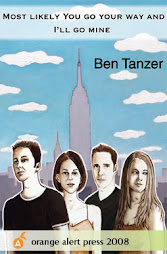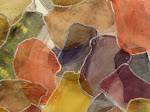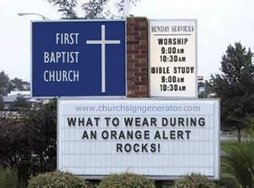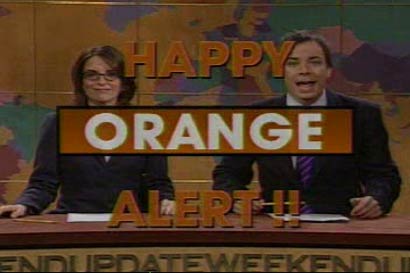
Ben Segal
In business you are consistently told to "think outside the box", and as Americans we are always reminded of our freedoms. We are encouraged to discover new ways of solving old problems, and reach out in abstract and undefined ways to become something new. However, some may contend that the most magical explorations and greatest discoveries may occur inside the box. When we set limits for ourselves or very narrow goals that is when we excel.
Massachusetts writer Ben Segal has gone inside the box (or boxes) and in many ways come out with something new and original. His debut novella, 78 Stories (out June 20th No Records Press), fits perfectly into the structure of a crossword puzzle. That's right, the stories read both across and down. Inside these squares the words interweave and guide the reader carefully down the page. However, do not get caught up in the form, Ben manages to write quality stories as well.
Recently, Ben a was kind enough to answer a few of my questions.
Orange Alert (OA): Your debut novella, 78 Stories, has a unique structure. How did this concept first come to you and how long did it take to layout?
Ben Segal (BS): The idea for the structure came before any of the actual stories. I guess there are a few major reasons for choosing the form. I've been very very interested in the OuLiPo group for a few years and their ideas of constrained writing and find the idea of constrained writing to be very appealing. I even dedicated the book to Georges Perec (a member), who is one of my very favorite writers. If you'd like I could do a whole spiel on OuLiPo, but basically the short version is they are a French literary movement that grew out of a reaction against surrealism and automatic writing. OuLiPo is an acronym that translates into the Workshop for Potential Literature. They use very intense formal constraints to structure their writing and force creative and unusual combinations of words and narrative arcs so they don't get stuck in the common patterns of traditional writing.
I tried to use the crossword form specifically because I love crosswords, but mostly because I was thinking a lot about the idea of iterability. I wanted to see how I could work in a way that emphasized both repetition (in terms of the strict repetition of paragraphs in multiple directions) and difference (in so far as each repetition would signify differently). Finally, the idea of a single large sheet and the fact that a crossword puzzle is a non-linear form made it a really exciting concept to pursue.
As for layout, At first, it was very slow work to lay-out because I was doing all of the squares by hand, but then my girlfriend figured out how to computerize the layout and it became much easier. The difficulties mostly came from keeping both narrative strands in my mind when drafting each paragraph.
OA: Behind the layout and incredible appearance of the book there a great story, what can you tell us about 78 Stories the story?
BS: Can we make this now read: The story isn't so much a story as a big weird collection of stories that bleed into each other. My rule in writing was that any 'answer' across or down should be a coherent fragment. Other than that, I let the themes and plots emerge as naturally as I could. Vaguely you can say the book is about 2012,failed relationships, ghosts, and animals behaving strangely. Also a good bit of ennui and football. I'd like to again refer to Perec here, insofar as I think the way he uses formal play is something of an ideal for me. What I mean is that I really wanted was for this really exciting form to then yield a piece of writing that was often also funny and emotionally resonant and also generally stimulating. I'm not sure how well I've succeeded on all of those counts. Anyways, the story is a strange and kind of sad/funny, possibly apocalyptic world with 78 little narratives.
OA: You have decided do a book tour for this release, but incorporate more elements then just reading. What can someone except to see at your events?
BS: I live in this really awesome house in Northampton, Massachusetts with a bunch of other people and we do shows in our basement and have a fire pit and have done movie screenings and things like that. It's called the Purple House. If you're ever in the area, please come visit. Anyways, one of my housemates is a quantum physics researcher at Amherst College and another of my housemates is a really accomplished trumpet player. We decided that it wasn't fair that the kids in bands got to have all the fun, so we are going on a tour. Jim is going to be talking about physics and also doing some pretty amazing demonstrations. There will be magnetic fluids and discussion of the make-up of the universe. It's really cool. Peter's playing
trumpet. He's been in rock bands and classical ensembles and is actually a really fantastic klezmer musician, but on tour he's performing a lot of his solo work which features a lot of controlled improvisation and unusual manipulation of the instrument. I think what kind of ties the evening together is that we're all kind of working on things that I think are very interested in exploration and innovation, but at the same time we're all doing stuff that I think a lot of
different people (not just specialists) can understand and hopefully be really excited by.
OA: Can you tell us more about your record label?
BS: The label I do is called Leisure Class Records. I actually co-run it with Dallas Foster, a good friend from college who now lives in Chicago. He's actually the one who is hosting our Chicago show. The label puts out mostly folk/experimental kinds of things. We've done releases with Liz Isenerg, Veer Right Young Pastor, Cassette Concret, and Vio/Mire. We also have a website, www.leisureclassrecords.com, although we kind of suck at the internet so it is a bit out of date.
OA: This being your first book, is there a difference is seeing your work in print as opposed to on-line publication? Do you write differently for on-line journals then print journals? Is one better then the other?
BS: Print vs. Online is a hard question because I get a big thrill holding physical objects. That's a lot of why we do the label-- because we really like things like sewn and stencilled packaging. On
the other hand, having something online for free makes it way more accessible. This is all super-obvious, but I think the biggest thing for me is the hope that people read a story of mine no matter where it is published. As for the book, I felt strongly that 78 Stories should be in print, because I think it loses some of it's impact on a computer screen.
OA: What's next for Ben Segal?
BS: Next for me is that I have to write my Master's thesis and then probably more school. Then I want to teach somewhere and live in a big house with lots of people and do house shows and write little books and stories. Next is basically now with a real job, except better and
without a landlord.
Bonus Questions:
OA: Coffee? If yes, what is your favorite type of coffee and where can you find the best cup?
BS: I am boring and cheap, so I take regular coffee with a little cream and sugar. I probably take more cream and sugar than is seemly and real coffee lovers probably look down at me. They typically look down at me at the Haymarket Cafe, because that is where I go to have very reasonably priced soups and coffee.
OA: What type of music do you enjoy?
BS: I think the safe answer for the type of music I enjoy is the stuff my friends make and the music my label releases. That's a really big part of what I'm into. I'm also super into Amelia Fletcher, things released by Sarah Records and Subway Organizaton, Beulah, and I'm
currently getting pretty into 1950s and 60s pop music (doowop, girl groups).
Ben's tour stops in Chicago this Saturday, June 21st at 9:00, at 4F. 4F is located at 1354 N. Greenview Avenue. This is a house show and one that should not be missed. For more information on Ben Segal and 78 Stories please visit the No Records Press website or Ben's myspace page.
+by+Nick+Volkert).jpg)





















No comments:
Post a Comment